If you're the proud owner of a Buick, then you know that feeling of luxury and sophistication that comes with driving one. But what happens when the Buick check engine light comes on? While it may be tempting to ignore it, this light is trying to tell you something important about your car.
The check engine light is usually triggered by a problem with the car's emissions system. This means there's something wrong with how your vehicle is burning fuel. Sometimes, it can be a simple fix, like tightening a loose gas cap. But in other cases, it could be something more serious, like a faulty oxygen sensor.
If your Buick check engine light comes on, don't panic. Just take it to your nearest service station and have them run a diagnostic test. This will help determine what's causing the problem so they can fix it and get you back on the road quickly.
How Many Miles Can You Drive With The Check Engine Light?
If you're experiencing a check engine light on your dash and are confused about how serious it is, we might be able to help. There are a variety of meanings for the code, including a bad sensor to plug wires that need to be replaced. If the warning light is flashing, we suggest you visit an authorized Buick service center.
Buick Check Engine Light Flashing
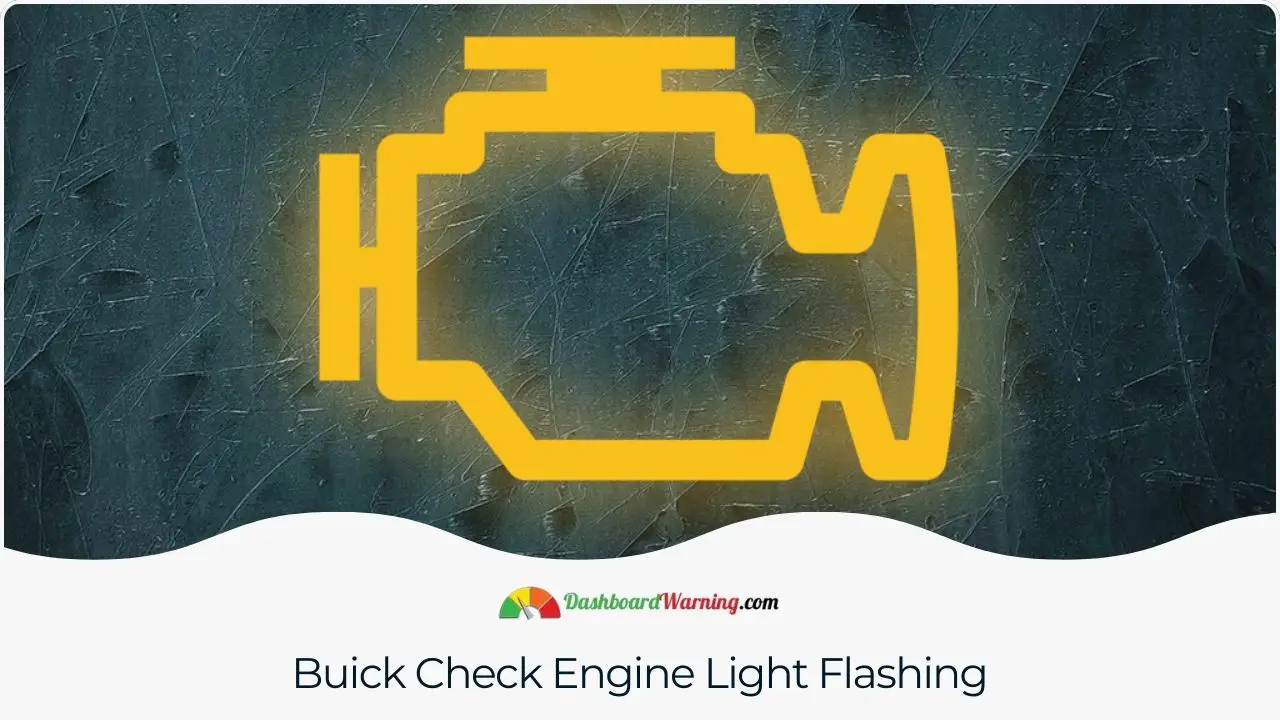
There are so many potential causes of an illuminated Buick Check Engine Light, but one we see repeatedly is a loose gas cap. We know from years of providing Buick Check Engine Light Diagnosis Service that this is a common cause. Other common reasons for a Check Engine Light include a faulty head gasket, damaged oxygen sensor, dirty mass airflow sensor, defective emissions control part, fuel injection system malfunction, or spark plugs. Fortunately, no matter what the root cause is. Our Buick Certified Mechanics and our certified service protocol will allow us to address and repair the problem if needed to restore factory specifications. When this happens, the Check Engine Light turns off, and you'll leave our service center with peace of mind, knowing that your Buick issue has been fixed.
Every Buick vehicle comes equipped with a high-technology performance monitoring system. With this system, your computer is incredibly detecting conditions on every essential part of your vehicle. It also tells your Electronic Control Unit when there's a problem and produces the Buick Check Engine Light to tell you something needs to be fixed.
See also: Buick dashboard warning lights
What Could Cause The Check Engine Light To Come On In A Buick?
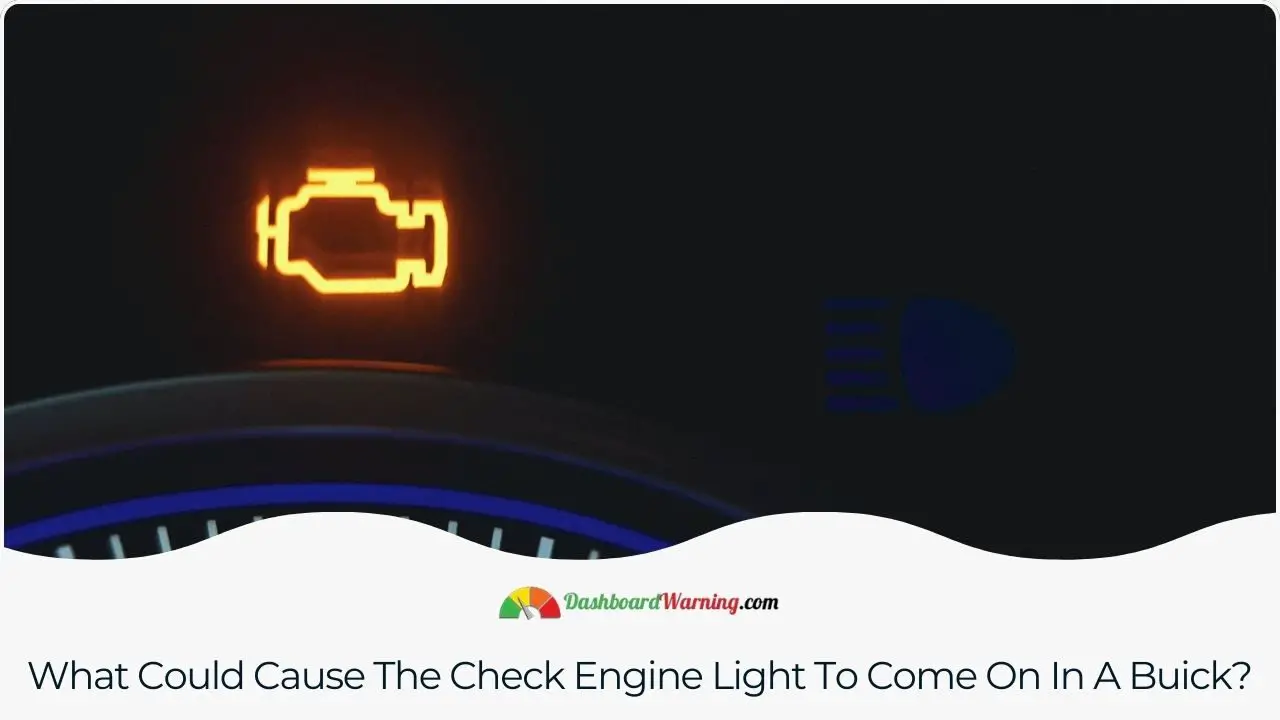
The check engine light on your dashboard can be a warning for a serious issue and could come with an expensive repair bill. Depending on your make and model, the check engine light will change appearance or start flashing when you need service. If your check engine light is flashing in your Buick, we highly recommend giving our service center a call so that we can diagnose the problem before you continue to drive.
Below is a list of common reasons your check engine light may come on:
- One of the most common yet frequently overlooked causes of a bad fuel cap is its loss or damage. Maybe you've lost your Buick gas cap, or perhaps it's time to replace your old gas cap with a newer one. It can cause problems like fumes leaking when you're not driving and have gotten inside the fuel tank, leaks in the fuel system, and dash lights turning on because the pressure in your tank is low. Luckily, for instance, replacing the gas cap only costs $10-20, and if you check your car’s light indicators right after refueling, you could fix them by tightening your gas cap if needed.
- The battery in your Buick is really important. Without a good car battery, your car won't start, provide light for the road ahead, play the radio, or charge your phone. Today's car batteries last much longer than before and don't require much maintenance. You'll find out how much a new one will cost based on your Buick type - but check our current service coupons and specials first!
- Your catalytic converter is broken or on its way to being hurt. The catalytic converter is a part of your Buick’s exhaust system, turning carbon monoxide into carbon dioxide. A damaged catalytic converter is often caused by ignored maintenance- and neglecting to repair this can lead to failing emissions tests and various other costly problems, from fuel efficiency and engine performance to higher car temperatures.
- Your Buick will need a new set of plugs or plug wires. The spark plugs are the part of the engine that ignites an air-fuel mixture in the ignition chamber. This explosion is what moves the pistons and causes the engine to work. The spark plug wires deliver a spark from an ignition coil to spark plugs. If your spark plugs or wires are old, you will experience less performance and reduced power. Sometimes, it can even be tough for your engine to start or continue running. Worn-out plug wires and plugs can cause clogged catalytic converters or damage to ignition coils and O2 sensors, leading to more expensive repairs.
- It's important to have aftermarket parts installed by a certified mechanic. Aftermarket items, like an alarm or exhaust system, can wreak havoc on your Buick. (Affordable Muffler Center) These aftermarket parts and accessories are known for draining the battery, triggering the check engine light, or preventing the car from starting. Let our team of qualified mechanics help you with installation work and make sure any items are installed properly. Using OEM parts might cost more, but it could save you money in the long term when repairs need to be made to poor installation work.
- Your Buick has a vacuum leak. Your Buick has a vacuum system that performs many functions, such as routing the fumes from gas as it runs through the engine. For example, if you notice your RPM is high in idle or random surges, a vacuum leak could be the cause. The problem with vacuum hoses is that they can dry out and crack from exposure to intense heat or extreme cold.
- It would be best to replace your Buick's mass airflow sensor. This sensor measures how much air enters the engine, determining how efficiently it runs. The mass airflow sensor is part of the engine management system, which adjusts to changes like altitude. If you find that your engine is having trouble starting, idling rough, or if the position of your throttle pedal changes suddenly, these could be signs of a bad mass airflow sensor.
- Your O2 Sensor is getting old. The Oxygen sensor, known as the O2 sensor, measures the oxygen in your exhaust system. If excess oxygen is in your exhaust system, fuel burns faster, and your vehicle will get low mpg. So, what will happen if I don't replace my O2 sensor? A broken sensor can no longer affect only your miles per gallon, but it can also cause damage to your Buick's catalytic converter and spark plugs. The O2 sensor sends data to the vehicle's onboard diagnostic computer so it knows the right mixture of air and fuel that enters the cylinders in your engine. A bad O2 sensor can still make a car fail an emissions inspection test.
Buick Check Engine Light Service
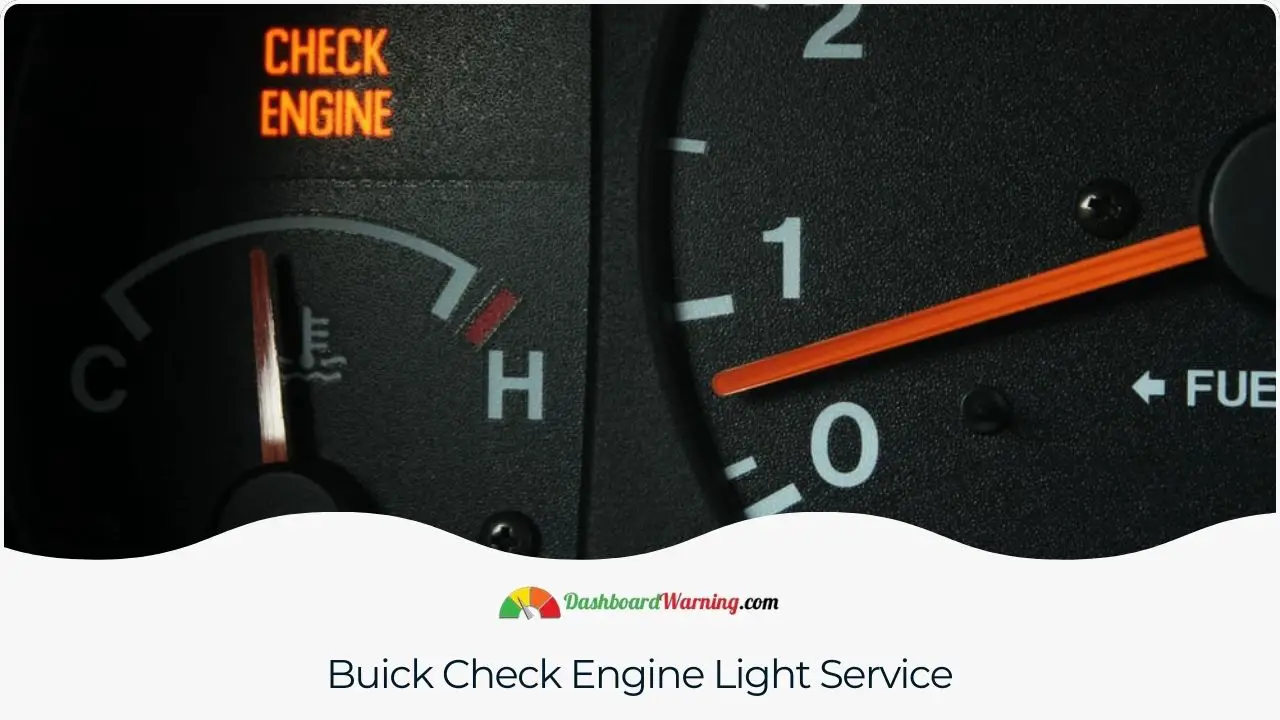
Did you know that "Check Engine" lights on Buicks are a warning, not an indicator of major damage? While this warning light is alarming, there's no need to panic. Your car needs to be checked at the first opportunity – but if your Buick is still running, you can continue driving and get it checked as soon as possible. Ignoring the warning could cause major damage to expensive engine components.
If Buick's ECM finds a problem that cannot be corrected, the vehicle's onboard computer turns on your "check engine" light. The light may indicate a problem with the vehicle's electronic control system and be labeled “check engine” or “service engine soon,” but it can also take the form of an actual picture of an engine (labeled “check”).
When a trouble code is generated, the ECM stores it as an engine or “trouble code” in its memory. This tells us the issue, whether it's a sensor issue or a part failure in the engine. However, even if you know the make and time of your vehicle, you still need an experienced technician to diagnose and repair the problem.
How Much Does It Cost To Get The Engine Light Checked?
If the check engine light comes on, there may be various issues. Usually, it's just a problem with the gas cap or one of the more important components, like the catalytic converter or an oxygen sensor. Nevertheless, it’s good to get the proper diagnosis. With our complimentary multi-point inspections and free diagnostics, you can find out what's causing your check engine light and address any problems quickly.
Buick Check Engine Light Codes
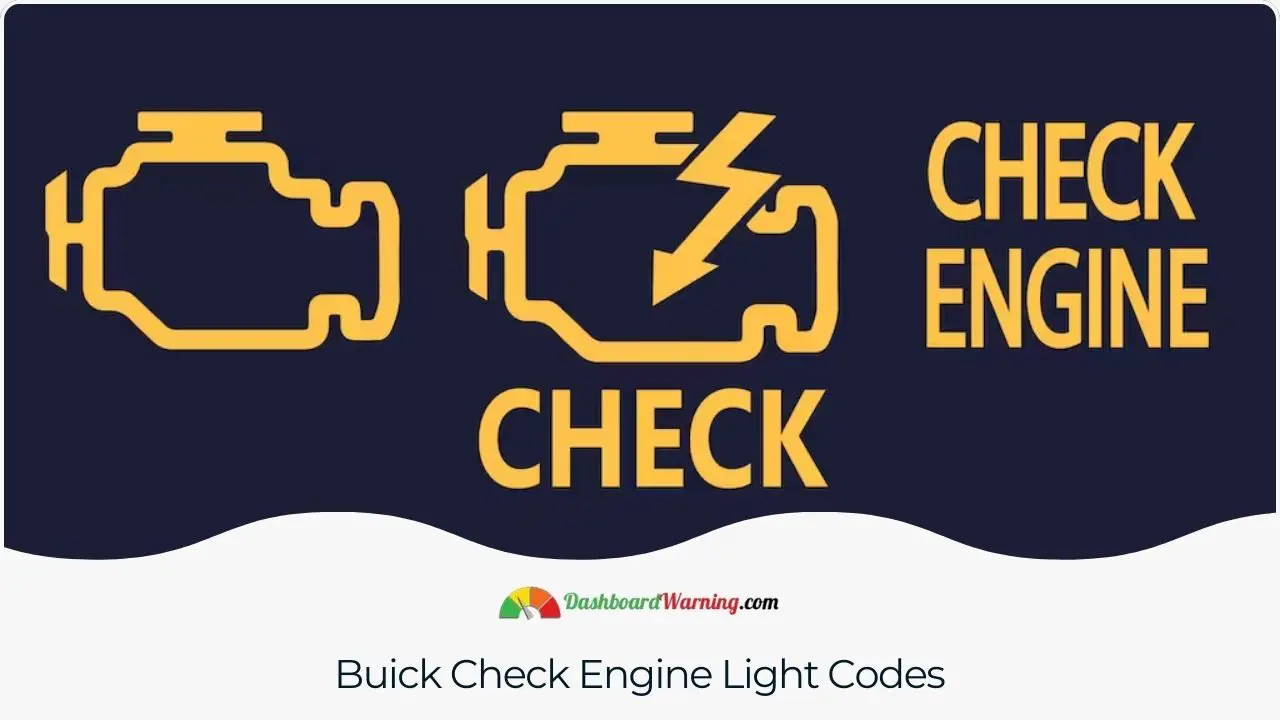
For the most part, you can't depend on a check engine light to tell you what might be wrong under the hood of your car. Although there are hundreds of codes your check engine light can indicate, there is not one that corresponds to each symptom. There's approximately a 400% probability that the error code associated with your light will fit with any given car issue.
- Loose Gas Cap or Missing Gas Cap
- Fuel and air metering systems problems
- Bad Spark Plugs
- Computer output circuit issues
- Emissions control issues
- Transmission issues
- O2 Sensor
- Ignition system faults
- Old Battery
When your "Check Engine" light comes on, you must get it checked out as soon as possible. If the engine light comes on due to a serious worry, you risk damaging your car further by not repairing that issue immediately.
What Does The Check Engine Light Mean?
Understanding what your check engine light means can be challenging, but it's something that you need to know. The check engine light is related to your car’s on-board computer system and displays in different ways. Some of these are "Check Engine," an engine symbol, or both. This light illuminates either in amber or red and is part of the diagnostic system for your vehicle. Modern cars have increasingly been controlled and monitored by onboard computers since the 1980s and do many things. These include maintaining engine speed, shifting automatic transmission ignition timing, and implementing security control, to name a few.
Is It Safe To Drive Your Buick With The Check Engine Light On?
The severity of the issue depends on what's going on. You can drive if it's minor, like a loose gas cap, and it should be safe. However, if there has been a major change in the vehicle's performance or the check engine light is flashing blue, those are more serious problems that must be dealt with immediately.
Will The Check Engine Light Reset Itself?
Some reasons the check engine light will come on are a loose gas cap or a faulty catalytic converter. The light will turn off if you tighten your gas cap to correct the issue. Essentially, if your gas cap is loose and your catalytic converter is okay, you should be able to get rid of that light by driving for 20-40 miles. In most cases, if you're still within 40 miles of driving distance and the light is still on, bring it in so we can double-check the code & reset it.
FAQs About Buick Check Engine Light
What is the most common reason for check engine light?
The emissions/exhaust system is often the cause behind several illuminated check engine lights. This could be due to an exhaust leak or a malfunctioning catalytic converter. The mass airflow sensor (MAF) can also easily be triggered or fail, leading to this issue. Individuals need to have any potential problems with their exhaust system diagnosed and repaired as soon as possible to keep their vehicles running safely and efficiently.
Is it OK to drive with the check engine light on?
Driving a car with the engine light on is generally okay for a short period; however, inspecting the engine as soon as possible is important. If you find yourself driving and the check engine light comes on, remain calm and pay attention to how the vehicle performs. If any abnormal driving behavior occurs, safe pullover and inspect your car immediately.
What does a solid check engine light mean?
It is important to pay attention when the check engine light appears on the dashboard. If it stays steady, this indicates a non-emergency issue, such as a loose gas cap. However, if it flashes, this warns of a more severe situation that requires immediate attention and diagnosis with standardized diagnostic codes should be used to identify the trouble and rectify it quickly.
How do I know if my check engine light is serious?
If the check engine light is illuminated, it could either blink or remain constant. A blinking light, usually of a red hue in some cars instead of yellow or orange, indicates that attention must be immediately given to the vehicle. A mechanic should check your car directly to see whether the check engine light blinks or remains fixed.
Was this page helpful?

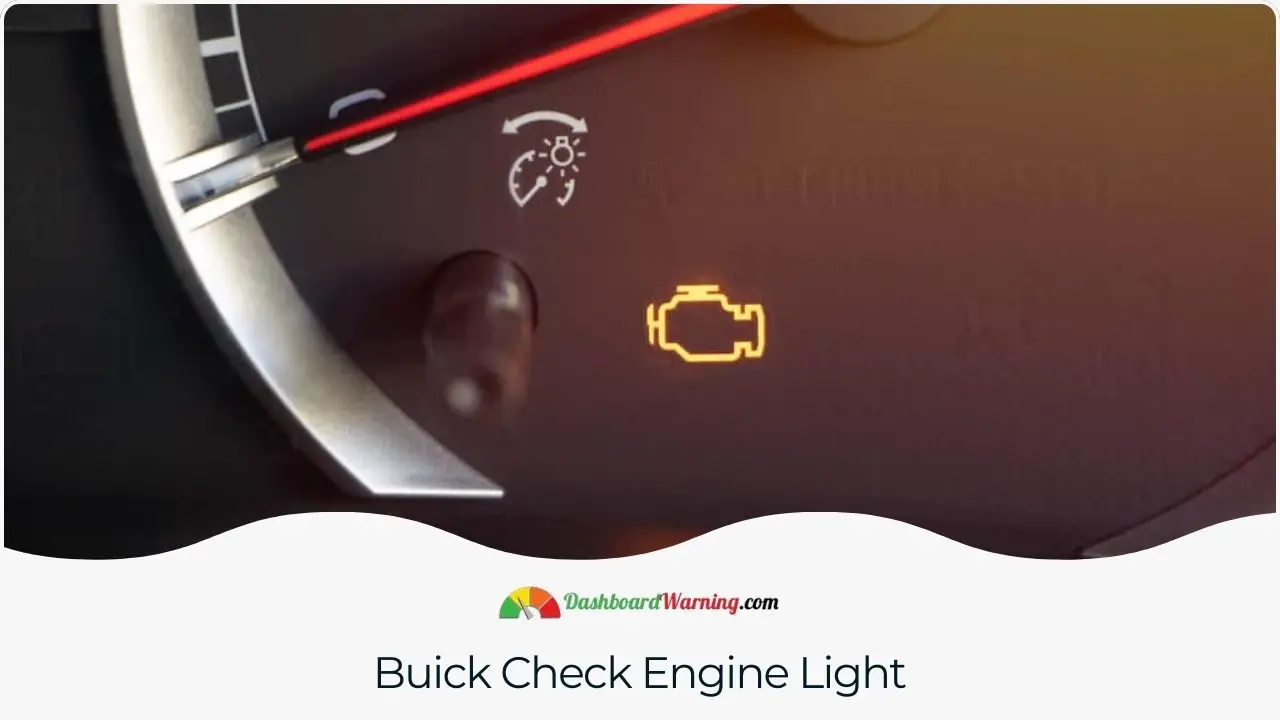
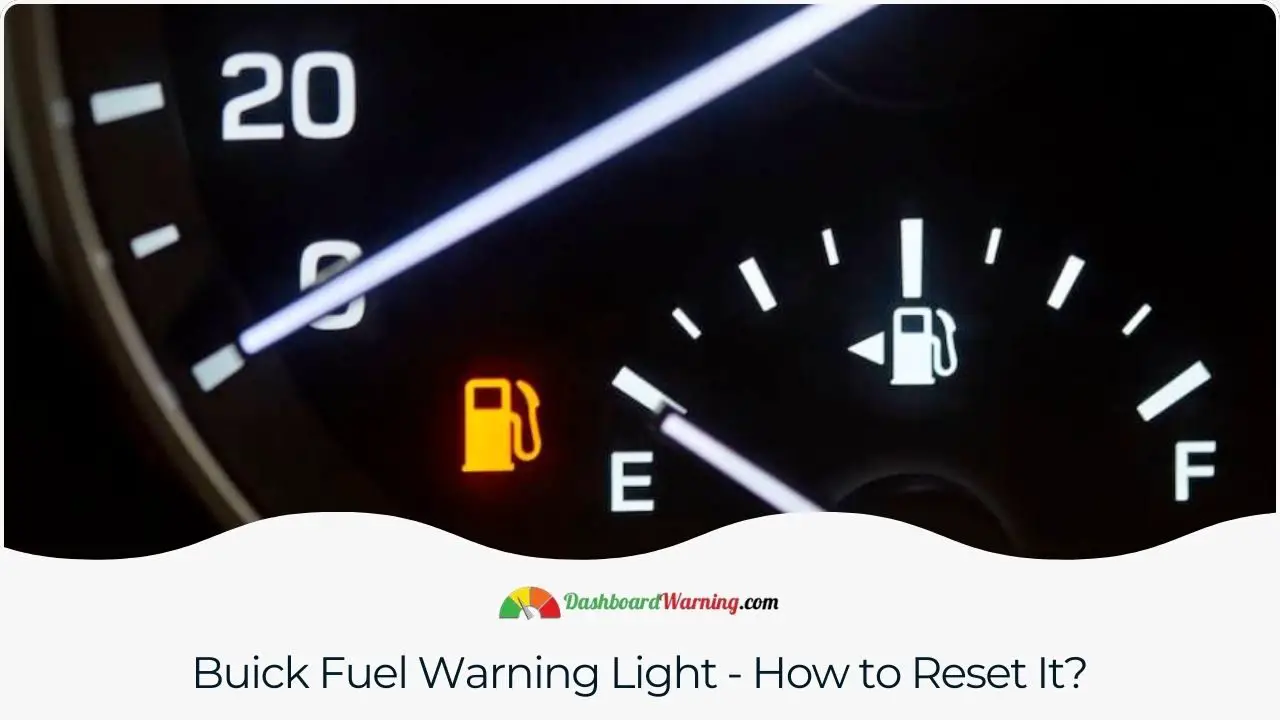

As an owner of a Buick, I understand the feeling of luxury and sophistication that comes with it. But when the check engine light goes on, you should never ignore it! That light is trying to let you know about something important regarding your car – so be sure to take care of it quickly.